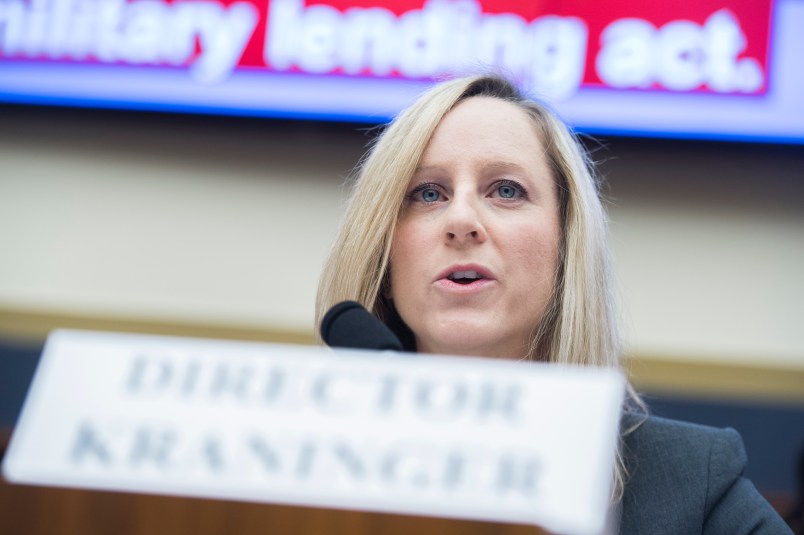NEW YORK (AP) — The new head of the Consumer Financial Protection Bureau is reversing yet another policy set by her predecessor by giving more sway to a group of committees that advise the financial watchdog.
CFPB Director Kathy Kraninger said Thursday that she would lengthen the tenure of members of the Consumer Advisory Board and three other committees to two years, and would allow half of the committees’ existing membership to continue serving. The agency would also increase the number of in-person board meetings per year from two to three.
Mick Mulvaney, who ran the CFPB for President Donald Trump on a temporary basis until last December, dissolved the Consumer Advisory Board and other groups, which act as a sounding board for the agency on important economic and financial issues as well as policy. Consumer groups had expressed outrage at the move, saying it stopped important dialogue between the CFPB and outside groups.
The CFPB is a highly independent agency, and receives its budget not from Congress but from the Federal Reserve, which allows the CFPB to act as it wishes without the support of Congress. However when Congress created the CFPB, it required that the bureau create advisory boards consisting of community members, banks, credit unions and academics to advise the bureau on policy decisions. The bureau was required by law to meet with these groups at least twice a year.
Mulvaney argued that while the bureau had to meet with these groups, who made up the groups was largely up to the bureau. In June, he dissolved the existing boards entirely and reconstituted them with entirely new hand-picked membership. He also reduced the tenure of the board members from three years to one year, a move consumer groups felt destroyed any institutional knowledge these boards may have had, since membership would change each year.
One of Kraninger’s first moves after taking over the bureau was to stop the debate over the bureau’s name. Mulvaney moved to change the name of the CFPB to the “Bureau of Consumer Financial Protection,” which is the legal name of the bureau but had never been used in the bureau’s branding. She brought an end to the debate, saying the CFPB’s name would stay the CFPB in most circumstances.



